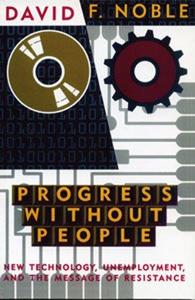
Progress Without People: New Technology, Unemployment, and the Message of Resistance By David F. Noble
1995 | 184 Pages | ISBN: 1896357008 | PDF | 4 MB
A provocative discussion of the role of technology and its accompanying rhetoric of limitless progress in the concomitant rise of joblessness and unemployment."There is agreaqt deal of justifiable concern about global unemployment and the 'jobless economy' of the future, with growing inequality and marginalization of much of the population, even in the wealthier countries. The Tendencies are commonly attributed to inexorable market forces and the like."David Noble's outstanding work shows the shallowness of these analyses. He shows how particular modes of deskilling and marginalizing the workforce have been specifically designed through the state sector in co-operation of unaccountable private power that seek their mastery over the global economy and society. Progress Without People is a masterful and lucid portrayal of what is happening in the real world of state-corporate power, and what it means for the people of the world."--Noam Chomsky"The Age which first automated factories and the age which automates them are alike. We know that the job killing of the late 18th and 19th centuries hurt both the cottage workers, their communities and a system of production that extended far beyond people like hand-loom weavers. We know workers defended themselves by direct attacks on the new looms and machines intended for factory use. These movements came to be known as Luddism."It is the subject area that David Noble goes to immediately to provide a detailed analysis of the effects of automation in its mechanized and computerized forms. He knows how history has been distorted so that the term 'Luddite' can be used to target any who try to save their jobs and control conditions of life in industrial, office, retail or service jobs."--Eric Hobsbawm
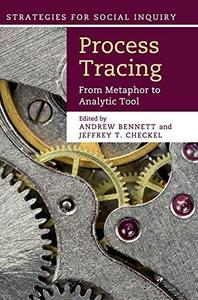
Process Tracing: From Metaphor to Analytic Tool By Andrew Bennett, Jeffrey T. Checkel
2015 | 342 Pages | ISBN: 1107044529 | PDF | 2 MB
Advances in qualitative methods and recent developments in the philosophy of science have led to an emphasis on explanation via reference to causal mechanisms. This book argues that the method known as process tracing is particularly well suited to developing and assessing theories about such mechanisms. The editors begin by establishing a philosophical basis for process tracing - one that captures mainstream uses while simultaneously being open to applications by interpretive scholars. Equally important, they go on to establish best practices for individual process-tracing accounts - how micro to go, when to start (and stop), and how to deal with the problem of equifinality. The contributors then explore the application of process tracing across a range of subfields and theories in political science. This is an applied methods book which seeks to shrink the gap between the broad assertion that 'process tracing is good' and the precise claim 'this is an instance of good process tracing'.
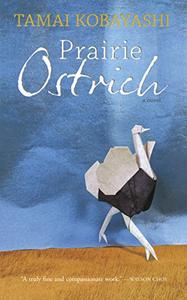
Tamai Kobayashi, "Prairie Ostrich"
English | 2013 | ISBN: 0864926804 | 200 pages | EPUB | 0.69 MB
Winner, Dayne Ogilvie Prize for Emerging LGBT Writers

John Dean, "Practical Skills In Chemistry, 3rd edition"
English | 2017 | ISBN: 1292139927 | 657 pages | PDF | 24 MB
Practical skills form the cornerstone of chemistry. However, the diversity of skills required in the laboratory means that a student's experience may be limited. While some techniques do require specific skills, many of them are transferable generic skills that are required throughout the subject area. Limited time constraints of the modern curriculum often preclude or minimise laboratory time.
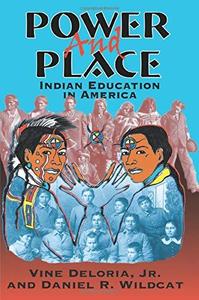
Power and Place: Indian Education in America By Vine Deloria Jr., Daniel R. Wildcat
2001 | 176 Pages | ISBN: 155591859X | PDF | 2 MB
Power and Place examines the issues facing Native American students as they progress through the schools, colleges, and on into professions. This collection of sixteen essays is at once philosophic, practical, and visionary.Vine Deloria Jr., was a leading Native American scholar, whose research, writings, and teaching have encompassed history, law, religious studies, and political science. He is the former executive director of the National Congress of American Indians. Daniel R. Wildcat (Yuchi, Muscogee) is the director of the American Indian studies program and the Haskell Environmental Research Studies Center at Haskell Indian Nations University in Lawrence, Kansas. He is the coauthor with Vine Deloria Jr. of Power and Place: Indian Education in America.
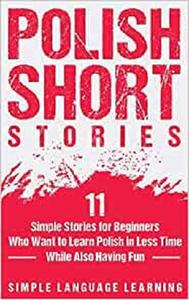
Polish Short Stories: 11 Simple Stories for Beginners Who Want to Learn Polish in Less Time While Also Having Fun by Bravex Publications
English | May 3, 2020 | ISBN: 1647486890 | 138 pages | EPUB | 0.29 Mb
If you're looking to learn Polish fast through simple and captivating stories, then keep reading...
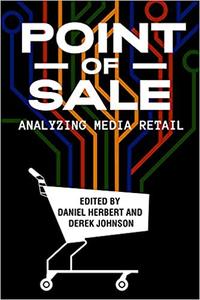
Daniel Herbert, "Point of Sale: Analyzing Media Retail"
English | ISBN: 0813595525 | 2019 | 300 pages | PDF | 2 MB
Point of Sale offers the first significant attempt to center media retail as a vital component in the study of popular culture. It brings together fifteen essays by top media scholars with their fingers on the pulse of both the changes that foreground retail in a digital age and the history that has made retail a fundamental part of the culture industries. The book reveals why retail matters as a site of transactional significance to industries as well as a crucial locus of meaning and interactional participation for consumers. In addition to examining how industries connect books, DVDs, video games, lifestyle products, toys, and more to consumers, it also interrogates the changes in media circulation driven by the collision of digital platforms with existing retail institutions. By grappling with the contexts in which we buy media, uncovers the underlying tensions that define the contemporary culture industries.
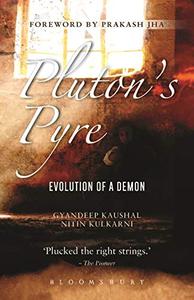
Gyandeep Kaushal, "Pluton's Pyre: Evolution of a Demon"
English | 2017 | ISBN: 9386349841 | EPUB | pages: 155 | 0.6 mb
Suraj is a boy in love. He has lost his mother, a father who is on-and-off concerned with his future, and an adoring grandfather. Circumstances force him to change schools and he fails to find the bonhomie he enjoyed in his last one.
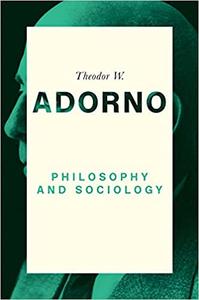
Theodor W. Adorno, "Philosophy and Sociology: 1960"
English | ISBN: 0745679412 | 2022 | 320 pages | PDF | 1350 KB
In summer 1960, Adorno gave the first of a series of lectures devoted to the relation between sociology and philosophy. One of his central concerns was to dispel the notion, erroneous in his view, that these were two incompatible disciplines, radically opposed in their methods and aims, a notion that was shared by many. While some sociologists were inclined to dismiss philosophy as obsolete and incapable of dealing with the pressing social problems of our time, many philosophers, influenced by Kant, believed that philosophical reflection must remain 'pure', investigating the constitution of knowledge and experience without reference to any real or material factors. By focusing on the problem of truth, Adorno seeks to show that philosophy and sociology share much more in common than many of their practitioners are inclined to assume. Drawing on intellectual history, Adorno demonstrates the connection between truth and social context, arguing that there is no truth that cannot be manipulated by ideology and no theorem that can be wholly detached from social and historical considerations.
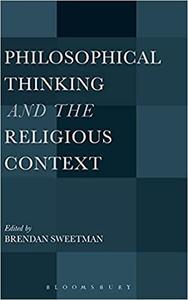
Brendan Sweetman, "Philosophical Thinking and the Religious Context"
English | ISBN: 1623565324 | 2013 | 224 pages | PDF | 2 MB
This new collection covers a wide range of cutting-edge and timely questions in contemporary philosophy of religion from a rich variety of backgrounds and perspectives. The essays in the volume deal with a range of fascinating topics in the philosophy of religion such as views of God's nature in process philosophy and theology, process views compared with traditional views (such as that found in St Thomas Aquinas), teleology and purpose in human life and in the universe, religion and evolution, the problem of evil both in human experience and in the natural world, and ethical questions concerning the human road to God, and the question of human rights in pluralist, democratic states.


